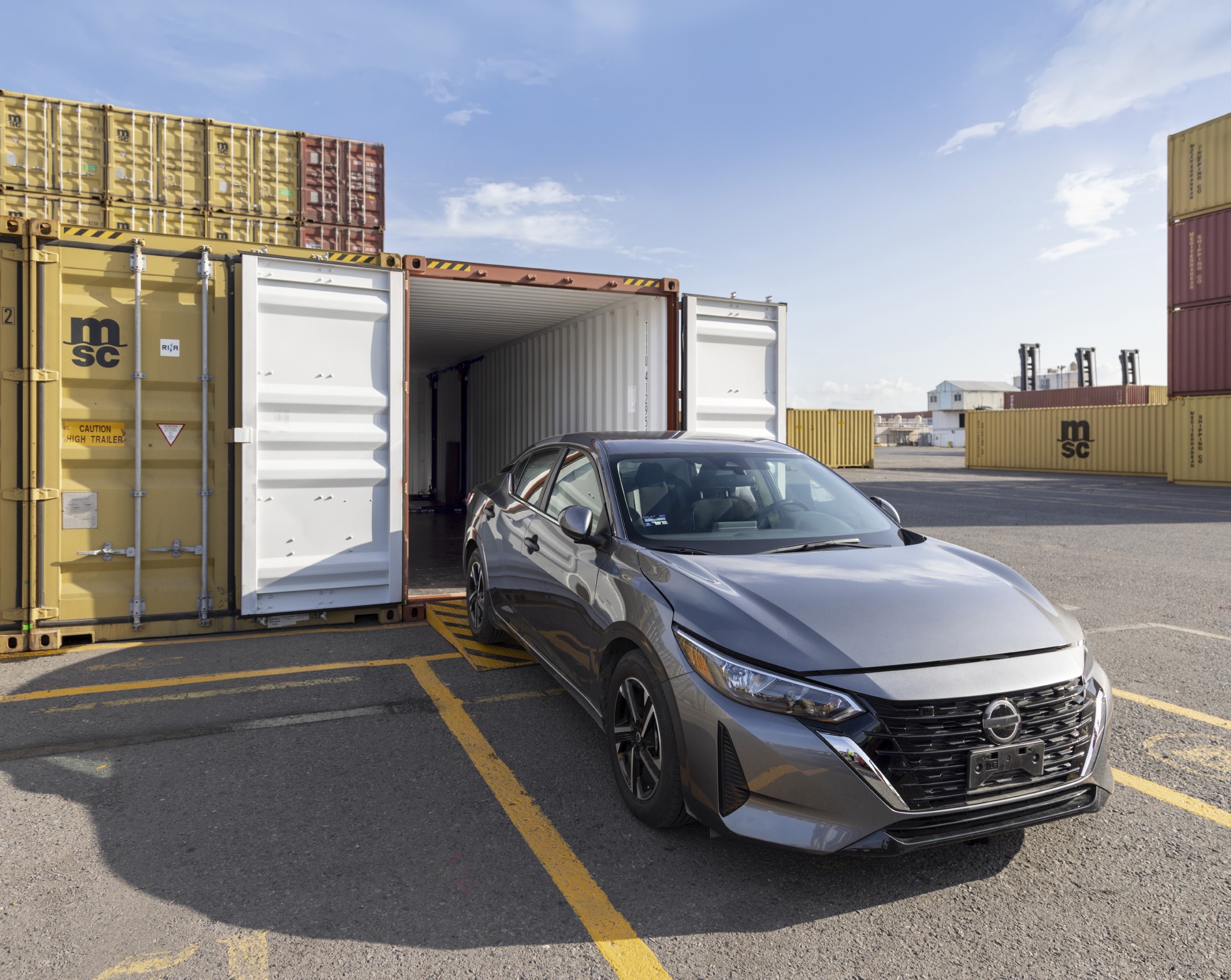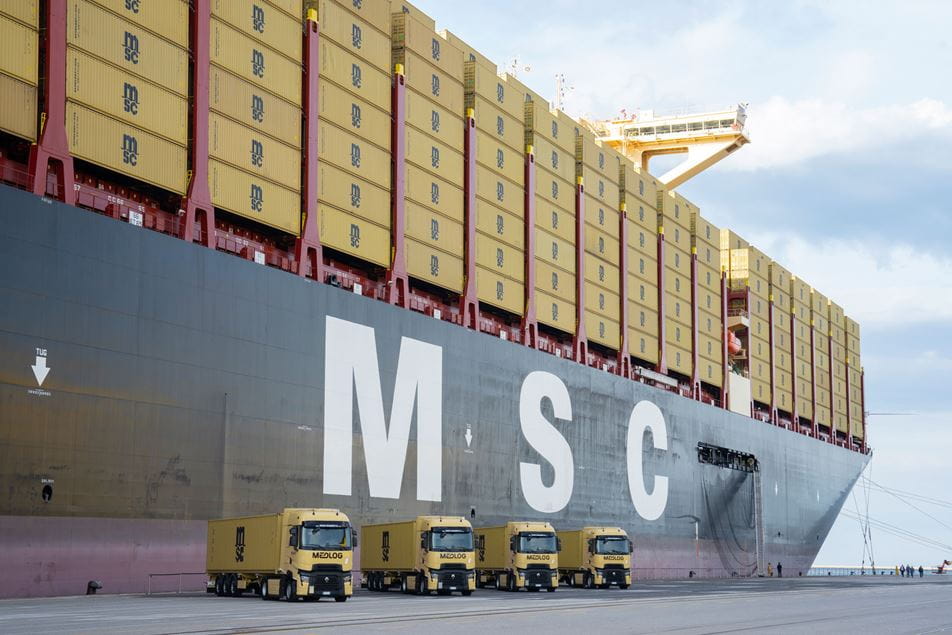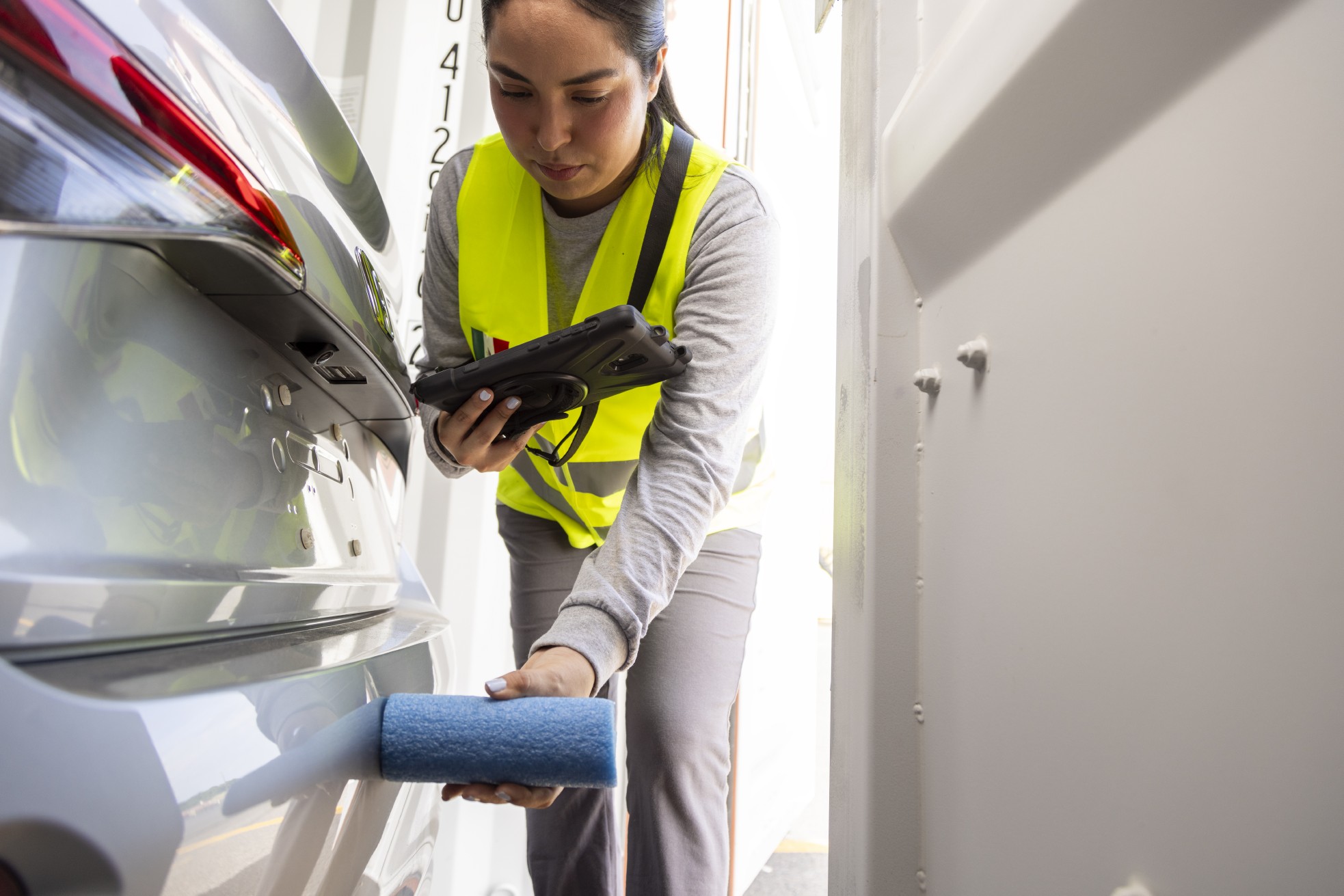
/tr/lp/blog/industries/shipping-vehicles-germany-guide
Shipping Vehicles to Germany: Process and Key Considerations
11/06/2025
Germany’s thriving automotive market isn’t just about exports—it’s also a hotspot for vehicle imports, from American muscle cars to electric vehicles. Known for having one of the largest automotive markets in the world, Germany is a key trade partner for businesses operating in the automotive industry. In 2023 alone Germany was the leading exporter of passenger cars and vehicle parts, however appetite for imported vehicles remains equally strong.
Consumer demand is high not only for luxury cars but also for second hand cars like classics, American muscle cars, and electric vehicles (EVs) that aren’t readily available locally.
This high demand, combined with other factors including its central European location, strong international trade agreements, and logistics capabilities mean that when it comes to expanding your business, importing cars to Germany is a great opportunity for business growth.

Seamless Journeys: Exploring the Best Shipping Methods for Cars to Germany
In terms of shipping vehicles to Germany, there are several methods that can be used, including air freight which is ideal for urgent deliveries or shipping high value cargo.
Another option that can be used is RoRo shipping, which involves driving vehicles directly onto specially designed vessels.
However, one of the methods gaining popularity for transporting vehicles internationally is containerized shipping. For this, cars are secured within a dedicated container (protecting them from the weather) throughout transit. Not only does this shipping approach protect vehicles from damage but can also be used for transporting high-value, classic, and non-operational vehicles.
Seamless Journeys: Exploring the Best Shipping Methods for Cars to Germany

In terms of shipping vehicles to Germany, there are several methods that can be used, including air freight which is ideal for urgent deliveries or shipping high value cargo.
Another option that can be used is RoRo shipping, which involves driving vehicles directly onto specially designed vessels.
However, one of the methods gaining popularity for transporting vehicles internationally is containerized shipping. For this, cars are secured within a dedicated container (protecting them from the weather) throughout transit. Not only does this shipping approach protect vehicles from damage but can also be used for transporting high-value, classic, and non-operational vehicles.
For businesses importing vehicles to Germany, Bremerhaven port is frequently used as the destination for these types of containerized shipments providing more options.
Key Stages in the Car Shipping Process to Germany
Regardless of which transportation method you choose, to ensure that your approach to importing a car to Germany is successful, there are several stages in the shipping process that are vital to perfect. These include:

Choosing a Shipping Company
When selecting a shipping company to handle your automotive shipping, you should always check their reputation, experience, and insurance policies to make sure that your cargo has the best protection possible.
It’s also important to understand which services they offer for vehicle shipping and compare quotes from different companies to ensure that you’re working with the best team for your business.
Preparing your vehicle for shipment
The next key stage in your automotive supply chain is properly preparing your vehicle for shipment. As well as cleaning the vehicle thoroughly and removing any items, it’s important that you take photos ahead of shipment in case any damage does occur.
You should also check the condition of the vehicle, as this may impact your chosen shipping method. For example, vehicles being transported using the RoRo method must be driveable, whereas containerized vehicles do not need to be.
Finally, you should also confirm the required fuel levels needed for shipment and adjust these accordingly. Most shipping companies state that less than a quarter of a tank of fuel is allowed, however, this may vary depending on your shipping partner, thus it is better to always check.
Required Documentation
One of the final key stages when car shipping to Germany is to check the required documentation. Not only will you need proof of ownership and identification, but other necessary documents also involve:
- Import declarations and customs forms.
- Certificates of Conformity (CoC) for vehicles not manufactured in the EU. This verifies that your car or automotive complies with EU standards.
- Proof of insurance.
- Customs clearance documents (including invoices, customs duty payments, and registration).
Ultimately, completing these stages helps make your automotive supply chain as efficient as possible. By working with an experienced shipping company and preparing where possible, you’ll be able to deliver the best for your customers and build a positive reputation for your business.
Clearing the Way: Customs Regulations & Import Duties
for Shipping Cars to Germany
Another element that is important when shipping vehicles to Germany is customs regulations and import duties. Germany has specific regulations to ensure compliance with safety, environmental, and taxation standards, and understanding these will help ensure a smooth transportation of your shipment.
Areas you should consider include:
Customs Duties and Taxes
For vehicles being imported from non-EU countries, generally, a customs duty of 10% and an import value-added tax (VAT) of 19% are added based on the vehicle’s customs value. These prices include the purchase price, shipping costs, and insurance so be aware of these ahead of shipping.
Safety and Compliance
All imported vehicles must comply with German and EU safety and environmental standards, including emissions regulations, technical specifications, and roadworthiness. As a business, you should make sure you know and understand these standards thoroughly before shipping your vehicle to Germany.
Temporary Imports
If you’re importing a non-EU registered vehicle to Germany, you don’t have to pay duties or taxes for up to six months within a twelve-month period. If you’re only in Germany on a temporary basis, it’s worthwhile understanding the specific conditions of this, as extensions may be granted under certain circumstances.
Transferring Residence
Equally, anyone transferring their primary residence to Germany from a non-EU country can import their personal car duty-free, as long as the vehicle has been owned and used for at least six months before. However, in this case, you cannot sell or transfer your vehicle within twelve months of being imported, and you must have your car shipped to Germany within twelve months of being there.
As customs regulations constantly evolve, you should check and consult with an experienced customs broker before planning your car shipments or work with a shipping carrier who will support you with customs clearance.

Shipping Vehicles: Top Tips for a Smooth Vehicle Shipment
When it comes to shipping your vehicle to Germany, there are a few other tips you can follow to make the process as smooth as possible.
![]()
![]()
![]()
Shipping Vehicles: Top Tips for a Smooth Vehicle Shipment

When it comes to shipping your vehicle to Germany, there are a few other tips you can follow to make the process as smooth as possible.
![]()
![]()
![]()
Working with an experienced shipping partner can make shipping vehicles to Germany easier and more efficient. Not only will they ensure you have the correct documentation, but can also support you through the import process, giving you the chance to concentrate on other areas of your supply chain.
Ask MSC
At MSC we not only offer containerized vehicle shipping to Germany on a regular basis, but our dedicated team has years of experience in automotive shipping. This allows us to tailor our solutions to the challenges you face, so we can offer you the very best support possible. Contact us today to find out more.
Our Solutions
Shipping Solutions
Learn MoreInland Transportation & Logistics Solutions
Learn More
Digital Business Solutions
Learn More
Warehousing & Storage Solutions
Learn More